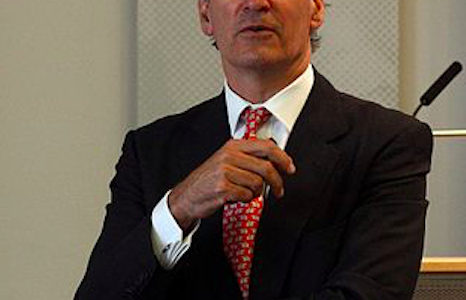by Michel Klompmaker
Economic crime scholarship presents an organisation as a double-edged sword. On the one hand, organisations are cheated by their employees, discriminated by corrupt public officials, and face cyberattacks, whereas on the other hand, organisations evade taxes, defraud their customers, and cheat competitors. While fraud, corruption and other forms of economic crime cause immense losses to individual organisations as well to society, many of those crimes are committed by organisations themselves. On Thursday, February 4, 2021 the 2nd Winter Economic Crime Symposium – Organizations: Beyond Victims and Perpetrators was held online by the Centre for Counter-Fraud Studies at the University of Portsmouth. The event sought to explore the network of relationships inside and between organisations and how it should not be reduced to two groups, victims and perpetrators. With a theme focused on economic crime, several professionals gave keynote presentations on a range of topics from brand protection, corruption, corporate compliance, foreign bribery, and intellectual property (IP) crime. The Risk & Compliance Platform Europe was also a media partner and covered the event via its website. This is part two.
Dr. Abiola Makinwa (Principal Lecturer at the Hague University of Applied Sciences) opened her presentation by stating that less than 2% of fraud is looked into and less than 1% is brought to justice. She stated that when it comes to people engaging in fraud, they don’t seem to be adequately punished. They can receive bonuses and walk upwards in the economy rather than receiving a sentence, and that holding individuals accountable is lagging behind.
The normative shift in the criminalisation of foreign bribery
She discussed how we need to look beyond the status quo of criminals and beyond the duality of victim and perpetrator. She touched upon compliance programs and stated how every company has a compliance department. She said that compliance programs are at the core of the discussion about the corporation being something more than just a victim or a perpetrator.
Dr. Abiola Makinwa went on further to discuss how there was a fundamental change in the narrative with the criminalisation of giving bribes to acquire business. She also stated that up until 1996 it was perfectly legal to give bribes to get business in foreign countries. It was in 1996 that the Organisation for Economic Cooperation and Development (OECD) passed this recommendation to its member states recommending that it should stop allowing companies to declare these bribes to get business abroad as tax deductible expenses.
She further explained how this normative framework began to change with the criminalisation of foreign bribery. She stated how we now have a normative baseline to which corporate bribes are categorised as criminal activity. This also did not occur that long ago, and she maintained that this was not a eureka moment as corruption enforcement remains an ‘Achilles heel’. She said that bribery is a very serious crime, but that it is also the kind of crime that can hold society hostage and have devastating impacts. The fundamental challenge, she stated here, is that whatever laws we pass, we have to overcome this basic character of corruption undermining the government’s processes themselves.
Systemic challenges in traditional criminal prosecution of foreign bribery cases
Dr. Abiola Makinwa stated that the systemic challenges are challenges that we need to overcome in order to arrive beyond the discussed duality of perpetrators and victims, and to form effective and efficient anti-foreign bribery enforcement. So, what are the systemic challenges? She discussed a few of them. First of all, she stated that we are talking about sophisticated, multi-layered, jurisdictional, digitally facilitated transactions that very few countries, even the USA or UK, have the capacity or resources to discover or prove that an actual bribery has taken place. She further explained that when you have very deep pockets, there are profound information asymmetries, which is extremely difficult to overcome because you are faced with a corporation or alleged offender that has very deep pockets.
Most importantly, she discussed how the traditional approach to criminal prosecution does not address the severe costs of corruption. In addition, the focus on the traditional narrative on criminal prosecution, as she stated, is to find and punish the bribe giver and the bribe taker. As such, she explained that this enforcement strategy does not address the underlying corrupt transactions; the bribe is a means to an end, but it is not an end in itself. Therefore, foreign bribery, as she reasoned, fuels the abuse of entrusted power in countries that can least afford this assault on governance, which leads to an abuse of law. Government agencies and economic security become compromised, and this leads directly to gaps and breakdowns in governance, which fuels a vicious cycle of corruption.
In addition, Dr. Abiola Makinwa talked about how a vicious cycle of corruption leads to a loss of hope in the system. People get the general feeling of ‘if you can’t beat them, you might as well join them’. This is why, as she stated, it is a good thing that the narrative is changing, and that foreign bribery has been criminalised. In fact, as she maintained, this change has led to the emergence of compliance programs as pivotal in foreign bribery enforcement, which has very much to do with this new notion of seeing the corporation as a partner in the form of public and private cooperation with the state.
The framework for the public and private cooperation can be found in the United Nations Convention Against Corruption (UNCAC). She stated that the UNCAC encourages enforcement authorities to put into place mechanisms encouraging public and private cooperation of self-reporting, accounting and auditing controls. She mentioned how creating and incentivising the private actor to collaborate (as opposed to the traditional approach of the ‘hunter’ and ‘hunted’) have transformed the private actor into an actor that polices, reports and puts into place hard and soft controls to prevent corruption.
Corporate compliance – What behaviour is rewarded?
With the genesis of this public and private cooperation, Dr. Abiola Makinwa stated that we see that it has become the driver of the compliance program as a foreign bribery enforcement strategy. The key aspect to note, as she explained, is the nexus between corporate behaviour and the self-disclosure of misconduct before it is discovered or investigated by public authorities. The question, therefore, becomes as she stated: what behaviour is rewarded? This, she explained, is where the whole compliance program comes in to play.
She then discussed how different authorities give different guidelines on what the expected behaviour is. She pointed out how corporations are looking at these guidelines and are trying to set up a safety net by ensuring that they are on ‘the right side of the table’ if things fall apart. She noted that the regulatory authorities which put out these guidelines can shape the behaviour of companies. So, what are these regulatory authorities looking for? She stated that they are looking for genuinely proactive anti-bribery approaches, genuinely effective compliance programs, self-reporting, remediation, and even for victim compensation.
So, what effect does this shift in corporate behaviour have? For one, she talked about how it helps to overcome some of the discussed systemic challenges. It also helps to address the lack of resources, tackle recidivism, encourage good corporate citizenship (companies are putting into place hard and soft controls to prevent acts of corruption from occurring), reduce economic disruption, and impact on third parties (companies become a more robust, healthier place to work by helping employees to not engage in bribery), etc.
Non-trial resolutions (NTRs)
Dr. Abiola Makinwa mentioned that what we have seen is a much-increased level of enforcement, which is corroborated by an increased amount of self-reporting by corporations. This is associated with a rapid increase of NTRs, which today have become the primary vehicle of anti-foreign bribery enforcement. NTRs, however, are subject to criticism, including whether they follow the rule of law standards and whether they go beyond mere window-dressing.
She proceeds by saying that if the regulatory authorities have been held hostage due to being undermined by corruption themselves, how can they be a reliable channel of enforcement? She stated that we have to find a way to bypass compromised institutions and if we want to improve the rule of law, we have to create alternative pathways to governance. She maintained that this is where NTRs have been used as an alternative prosecution model that can bridge governance vacuums that are formed by corruption.
She then discussed several gaps associated with NTRs. First is the question of victims. She said that if settlements are the primary mechanisms for anti-bribery enforcement, what happens to the victims and where do they fit into this scheme? Another gap is that foreign bribery is a supply side offense – you are punishing the person who gives the bribes – but what about the person who takes the bribe? (the demand side). She stated that if NTRs are the primary mechanism of anti-bribery enforcement, then they must include the demand side as well. So, the questions here become as she noted: how do we create a demand side NTR regime? What would it look like? How can we leverage what we have now from the supply side and create processes on the demand side that could also incentivise self-reporting, self-policing, self-remediation and prevention?
Conclusion
Dr. Abiola Makinwa concluded by stating that NTRs as well as NTR driven compliance programs are here to stay. She also mentioned how the challenge for the next decade is to include victims and establish a demand side NTR regime. This is also associated with the increased awareness and education about the prevention space and the emerging global anti-bribery standards.




